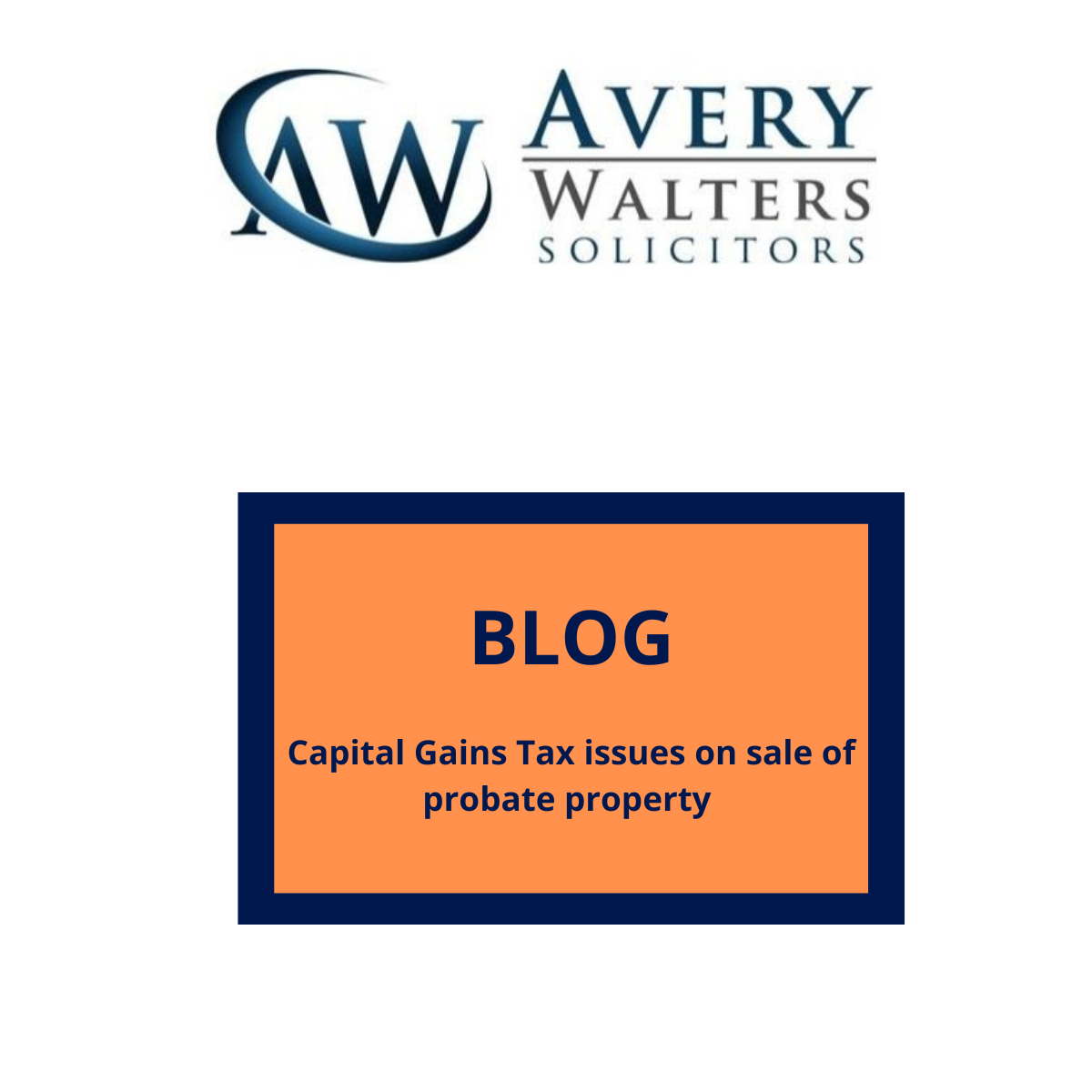Capital Gains Tax issues on sale of probate property
Posted on 13th April 2023 at 15:36
Capital Gains Tax
If a property is sold at a higher value than it was valued at the date of death (the Probate value) then this could result in Capital Gains Tax being payable. When dealing with an Estate, the Personal Representatives are responsible for considering and settling any Capital Gains Tax due within 60 days of completion.
Capital Gains Tax is due on the difference between the Probate value and the sale value, less any expenses and less the Estate's annual tax-free allowance.
Deductible Expenses
You are able to deduct the following expenses from the potentially taxable value:
• The cost selling the property, including stamp duty, solicitor fees and estate agent fees.
• You may also deduct the costs of improvement works, for example for an extension or a new kitchen. However, you’re not able to deduct maintenance costs or mortgage interest from your tax bill.
Allowances
Individuals and estates are entitled to an annual exemption. Any gains above the annual exemption will be subject to tax at the relevant rate.
• In tax year 2022/23, the annual exemption was £12,300.
• For tax year 2023/24, the annual exemption is £6,000.
• From tax year 2024/25, we expect this will be reduced to £3,000.
The tax year runs from the 6th April to the 5th of April.
The rate of Capital Gains Tax for disposing of a residential property in an estate is charged at 28%. However, this can be mitigated through appropriation.
Different rules/rates may apply if the property is also your residence or you are dependant relative of the deceased.
Deed of Appropriation
If an Estate asset is expected to sell for a substantial gain, it is sometimes more tax-efficient to sell the asset on behalf of the Beneficiaries, rather than on behalf of the Estate. This process is known as Appropriation.
This is particularly beneficial if:
• The Beneficiaries are basic rate taxpayers, as the tax payable would be at a lower rate than it would be for the Estate (for a residential property this rate is 18%, compared to 28% if sold through the Estate).
• The Beneficiaries are charities, as they are exempt from Capital Gains Tax.
• There is more than one Beneficiary entitled to the Residuary Estate, as there would be multiple annual tax-free allowances to apply against the gain.
It is possible to appropriate a property to a Beneficiary with a legal document called a Deed of Appropriation. If the Beneficiary (or Beneficiaries) agree to the appropriation and have not utilised their Capital Gains Tax exemption, a Deed of Appropriation can be drafted and sent to them for signature.
The Deed of Appropriation would need to be signed and dated before the property is sold. This would mean that the property was no longer held by the Estate, but instead held on behalf of the Beneficiaries. By selling the property in this way, the Beneficiaries can utilise their annual tax-free allowances, provided they have not made any other chargeable gains in that tax year.
An Example
Alex, Ben & Charlie are the residuary Beneficiaries of their late mother’s estate. At their mother’s date of death, her property was valued at £500,000. Over the course of the administration period the property has increased in value and the Executors have accepted an offer on the property of £525,000. The difference of £25,000 is liable for Capital Gains Tax.
As Alex, Ben & Charlie have not made any chargeable gains during the current tax year (6th April 2023 – 5th April 2024), they decide that they would like the property to be appropriated to them before it is sold. A Deed of Appropriation is drafted and signed by the executors ahead of exchange of contracts on the property sale stating that 3/4 is held by the beneficiaries and 1/4 is held by the Personal Representatives of the estate.
As a result, the Beneficiaries are able to apply their three annual tax-free allowances totalling £18,000. The estate also has an exemption amount of £6,000. There are also sale fee totalling £3,000. This gives a total exemption of £24,000 and deductions of £3,000 which exceeds the £25,000 gain on the property. There will no longer be any Capital Gains Tax liability to pay.
However, if the property had been sold through the Estate, there would only have been one tax-free allowance to mitigate the gain of £6,000. This would have resulted in a Capital Gains Tax liability on any amount over £6,000. This would have been charged at 28%, which would have been paid out of the Estate, reducing the funds left over for distribution to the Beneficiaries.
At Avery Walters our team of specialists can provide advice about Probate, writing Wills and reviewing existing Wills.

Contact us on 0113 2007480 or email us at info@averywalters.com to arrange your free initial, no-obligation consultation with a specialist.
Tagged as: Probate
Share this post:














